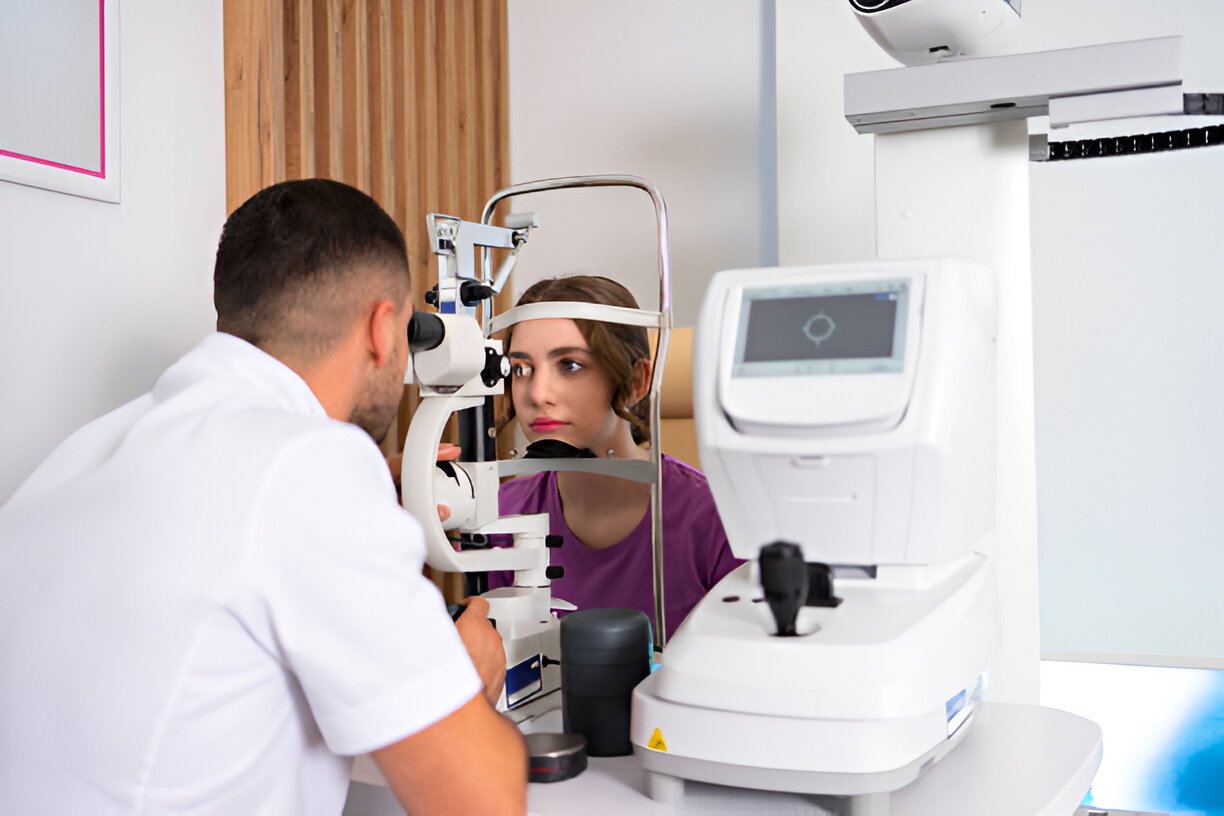Myopia, or nearsightedness, is a common eye condition where distant objects appear blurry while close objects remain clear. In Singapore, myopia is increasingly prevalent, especially among children and young adults. Studies show that environmental factors, increased screen time, and reduced outdoor activities are contributing to higher rates of myopia. Without proper control,and use of Myopia control lenses myopia can progress, leading to a higher risk of eye health complications later in life.
What Are Myopia Control Lenses?
Myopia control lenses are specially designed optical solutions aimed at slowing the progression of nearsightedness. They differ from regular corrective lenses, which simply improve vision without addressing myopia’s progression. Myopia control lenses use innovative optical designs to reduce strain on the eyes and manage how light focuses on the retina, which research suggests can help slow the elongation of the eyeball — a key factor in myopia progression.
How Do Myopia Control Lenses Work?
These lenses work by creating a specific optical zone that focuses light in front of the peripheral retina. This reduces the stimulus that triggers the eye to grow longer, which is a main cause of worsening myopia. Depending on the design, the central portion of the lens corrects vision, while the surrounding zones control peripheral defocus. This approach helps maintain clear vision while slowing down the progression of nearsightedness.
Types of Myopia Control Lenses Available in Singapore
In Singapore, several types of myopia control lenses are available to suit different needs and age groups:
- Specially Designed Spectacle Lenses
These look like regular glasses but use lens technology to manage peripheral defocus. They are ideal for children who may not be comfortable wearing contact lenses. - Orthokeratology (Ortho-K) Lenses
Rigid contact lenses worn overnight to gently reshape the cornea. They provide clear vision during the day without glasses or daytime contact lenses, while also slowing myopia progression. - Soft Myopia Control Contact Lenses
Daily disposable or monthly lenses designed with multiple optical zones to control myopia while providing comfortable vision correction.
- Multifocal Contact Lenses
Often used for adults, these lenses have varying powers within the lens to help reduce eye strain and control focus.
Benefits of Myopia Control Lenses
Choosing myopia control lenses offers several advantages:
- Slows Myopia Progression: Can reduce the rate of increase in prescription, lowering long-term risks.
- Better Long-Term Eye Health: Lower degrees of myopia reduce the risk of serious conditions like retinal detachment or glaucoma.
- Clear, Comfortable Vision: Maintains vision quality while controlling progression.
- Multiple Options Available: Suitable for children, teenagers, and adults.
Who Should Consider Myopia Control Lenses?
While myopia control lenses can be used by adults, they are particularly beneficial for children and adolescents whose eyes are still developing. Early intervention is key — the younger the patient when treatment begins, the more effective it can be in slowing progression. Parents in Singapore often explore myopia control lenses when their child’s prescription changes significantly within short periods.
The Fitting Process in Singapore
In Singapore, optometrists and ophthalmologists conduct a thorough eye examination before recommending myopia control lenses. The process usually involves:
- Comprehensive Eye Examination
Includes checking vision, eye health, and measuring the degree of myopia. - Lifestyle Assessment
The practitioner will discuss daily activities, screen usage, and outdoor habits to determine the best lens type. - Lens Trial and Adjustment
For contact lenses, a trial period helps ensure comfort and correct fitting. - Follow-Up Visits
Regular monitoring ensures the lenses are effective and safe for ongoing use.
Potential Side Effects and Considerations
While generally safe, myopia control lenses can have minor side effects, including:
- Initial visual adaptation period
- Mild discomfort with contact lenses
- Potential dryness in air-conditioned environments
Proper cleaning and handling of contact lenses are essential to prevent infections. For children, parental supervision is important, especially with Ortho-K lenses.
The Cost of Myopia Control Lenses in Singapore
Costs vary depending on the lens type and brand. Spectacle lenses may be more affordable initially, while Ortho-K and specialty contact lenses can be higher in price due to custom fitting and advanced technology. However, many parents view this as a worthwhile investment in their child’s long-term eye health. Some clinics offer installment plans or package deals to make treatment more affordable.
Alternatives and Complementary Strategies
In addition to myopia control lenses, Singapore’s eye care professionals often recommend complementary measures:
- Increased Outdoor Time: Spending more time outdoors has been linked to slower myopia progression.
- Screen Time Management: Reducing prolonged near work and taking frequent breaks can help.
- Balanced Lighting: Adequate lighting during reading or device use reduces eye strain.
These lifestyle adjustments, combined with myopia control lenses, can be an effective strategy for long-term vision care.
The Future of Myopia Control in Singapore
Singapore is at the forefront of myopia research and innovation. New lens technologies, improved materials, and data-driven treatment plans are making it easier for patients to access effective solutions. As awareness grows, more parents are seeking early intervention, and eye care providers are offering tailored myopia management programs.
Conclusion
Myopia control lenses are a valuable tool in managing the growing challenge of nearsightedness in Singapore. By slowing progression, they help preserve long-term eye health and reduce the risk of serious conditions. Whether for children, teenagers, or adults, these lenses offer a scientifically supported, practical solution for clearer vision and healthier eyes. Consulting a qualified optometrist or ophthalmologist is the first step toward making an informed choice.
